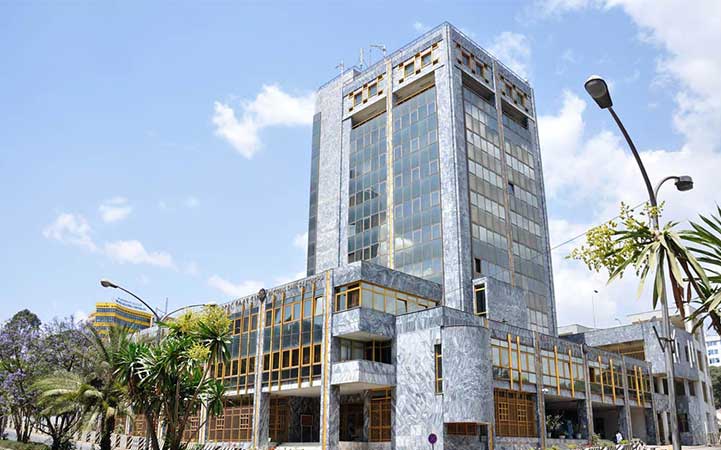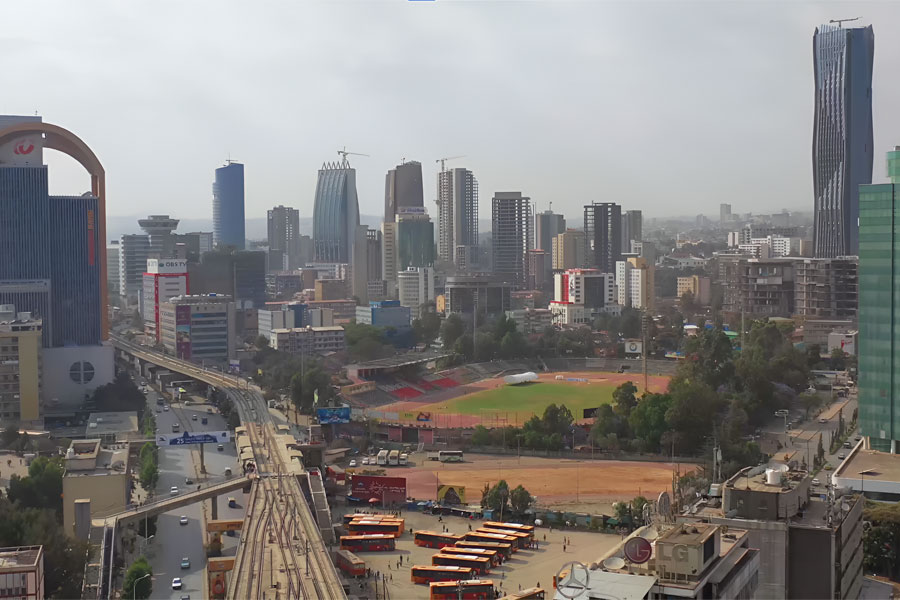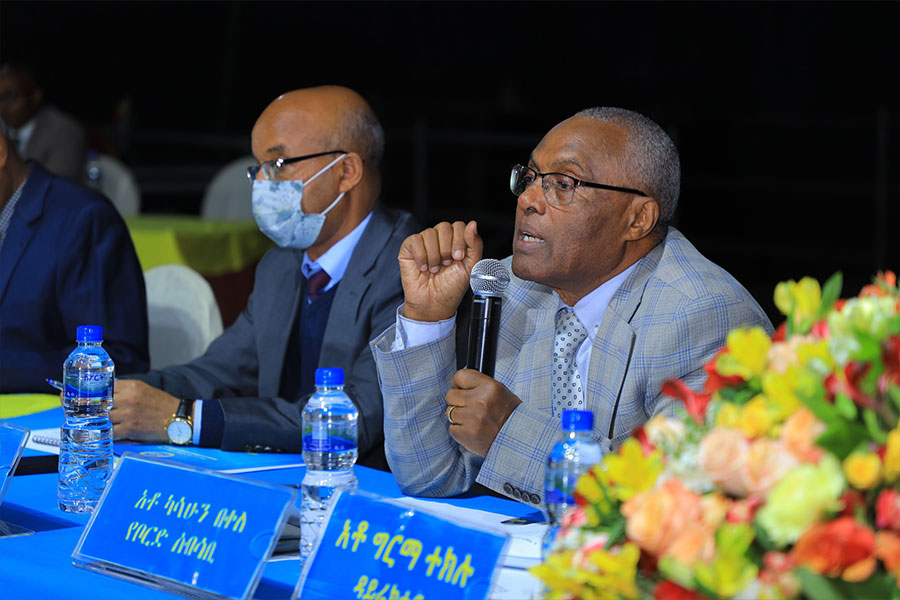
Viewpoints | Oct 23,2021
Jul 29 , 2023
By Lawrence H. Summers , N. K. Singh
The world is literally on fire this summer. Experts estimate that another COVID-level public health threat will likely emerge in the next generation. Rising interest rates have left dozens of countries with unmanageable debt burdens. And for the first time in nearly half a century, the global economy is fracturing rather than coming together.
These realities shaped the recommendations that we have just made to the G20 through a special expert group on development financing (which we co-chair). Our central conclusion is that this uniquely challenging moment requires a dramatic transformation of the operations of the multilateral development banks (MDBs), starting with the World Bank. Even as developing countries face much larger financing needs to meet development and climate goals, these banks' disbursements have not kept pace, and the degree to which they now transfer resources to developing countries is unacceptably low.
While most institutions, most of the time, aim for a gradual strengthening of their scale and effectiveness, MDBs have been stuck in place. We must move past sterile debates about whether we need more money or better policy, more green initiatives or more development spending, more public-sector programs or more private lending, more leverage or more capital. The language of "both/and" must replace that of "either/or."
To that end, we are calling for action on three fronts.
The MDBs should embrace a triple mandate by adding global public goods to their current goals of eliminating extreme poverty and boosting shared prosperity. That will mean fleshing out the policies and procedures needed to integrate their climate and development agendas. By clarifying and formally committing to these objectives, MDBs can better design and execute programs to address these goods, such as rapidly and at scale climate mitigation and adaptation, biodiversity, water security, and pandemic preparedness.
Stakeholders should provide MDBs with the requisite resources. By our calculations, sustainable lending levels at the MDBs need to triple by 2030, rising to about 400 billion dollars annually. This includes grants and concessional finance for the poorest countries, non-concessional funding for creditworthy middle-income countries, and resources for mobilising private finance.
A top priority is to persuade donors to provide an additional 30 billion dollars annually in grants and concessional funding for low-income countries (LICs). That would allow for a threefold increase in the International Development Association's funding by 2030, essential for helping LICs fulfil their development goals, manage global shocks, and pursue strong adaptation and resilience plans within sustainable debt frameworks.
It would also alleviate LICs' concerns that an expanded mandate for the MDBs would come at the expense of the support they need to pursue economic and human development.
Turning to middle-income countries, about half of the amount needed to support a tripling of lending levels can be generated by the MDBs through more efficient use of existing capital. But the other half will require a new round of general capital increases. Fortunately, this mechanism requires that donors pay only a few cents on the dollar, offering excellent value for money.
Every donor dollar could yield seven dollars in new sovereign lending and another eight dollars in the direct and indirect mobilisation of private capital.
But even with a significant increase in MDB lending, official assistance will fall far short. Private capital must fill the gap. The good news is that most MDBs have departments designed to catalyse private finance in a range of sectors, including energy, health, agriculture, financial inclusion, and infrastructure.
The bad news is that their track record has been disappointing: on average, MDBs leverage only 60 cents of private capital for every dollar they commit, well below their potential. For the last six years, their collective direct and indirect mobilisation of private finance has been stuck at 60 billion and 70 billion dollars annually.
Contrast that sum with the half-trillion dollars the private sector needs to help close financing gaps. MDBs should aim at least to double their mobilisation and commitment ratios by addressing key challenges such as local-currency risk, policy, and regulatory risk, a lack of bankable projects, and insufficient risk capital. Above all, stronger risk appetites at the MDBs will be crucial to success.
A coalition of funders (including governments, philanthropies, and the private sector) should establish a new "global challenges mechanism" that offers a range of financing options, such as guarantees, equity, and other risk-sharing instruments. This is needed to address a pervasive MDB shortcoming: underusing non-lending instruments (like guarantees) for sovereign and non-sovereign borrowers. Such tools have become especially relevant in today's volatile economic climate.
Multimate real development banks are the right vehicles for supporting our planet and its people. They alone provide the necessary combination of expertise, staying power, low-cost financing, leverage, and knowledge-sharing capabilities. But to help transform the future of developing countries, the MDBs must first transform themselves. That means embracing a wholesale culture of change to become more client-responsive and to operate better together – including through joint financing, risk sharing, and standard-setting.
We recognise that implementing our proposed agenda demands strong political leadership and the ability to stay the course. But we would point out that there is no other choice. The future of our planet and its people is at stake.
This article was provided by Project Syndicate (PS).
PUBLISHED ON
Jul 29,2023 [ VOL
24 , NO
1213]

Viewpoints | Oct 23,2021

Viewpoints | Jun 14,2025

Viewpoints | Oct 10,2020

Radar | Oct 12,2024

Radar | Jun 04,2022

Commentaries | May 13,2023

Fortune News | Aug 12,2021

Fortune News | Sep 01,2024

Fortune News | Sep 02,2023

News Analysis | Mar 16,2024

Photo Gallery | 171330 Views | May 06,2019

Photo Gallery | 161574 Views | Apr 26,2019

Photo Gallery | 151278 Views | Oct 06,2021

My Opinion | 136284 Views | Aug 14,2021





Dec 22 , 2024 . By TIZITA SHEWAFERAW
Charged with transforming colossal state-owned enterprises into modern and competitiv...

Aug 18 , 2024 . By AKSAH ITALO
Although predictable Yonas Zerihun's job in the ride-hailing service is not immune to...

Jul 28 , 2024 . By TIZITA SHEWAFERAW
Unhabitual, perhaps too many, Samuel Gebreyohannes, 38, used to occasionally enjoy a couple of beers at breakfast. However, he recently swit...

Jul 13 , 2024 . By AKSAH ITALO
Investors who rely on tractors, trucks, and field vehicles for commuting, transporting commodities, and f...

Oct 4 , 2025
Eyob Tekalegn (PhD) had been in the Governor's chair for only weeks when, on Septembe...

Sep 27 , 2025
Four years into an experiment with “shock therapy” in education, the national moo...

Sep 20 , 2025
Getachew Reda's return to the national stage was always going to stir attention. Once...

Sep 13 , 2025
At its launch in Nairobi two years ago, the Africa Climate Summit was billed as the f...

Oct 5 , 2025 . By NAHOM AYELE
In Meqelle, a name long associated with industrial grit and regional pride is undergo...

Oct 5 , 2025 . By BEZAWIT HULUAGER
The federal government is set to roll out a new "motor vehicle circulation tax" in th...

Oct 5 , 2025 . By NAHOM AYELE
The Bank of Abyssinia is wrestling with the loss of a prime plot of land once leased...

Oct 5 , 2025 . By BEZAWIT HULUAGER
The Customs Commission has introduced new tariffs on a wide range of imported goods i...